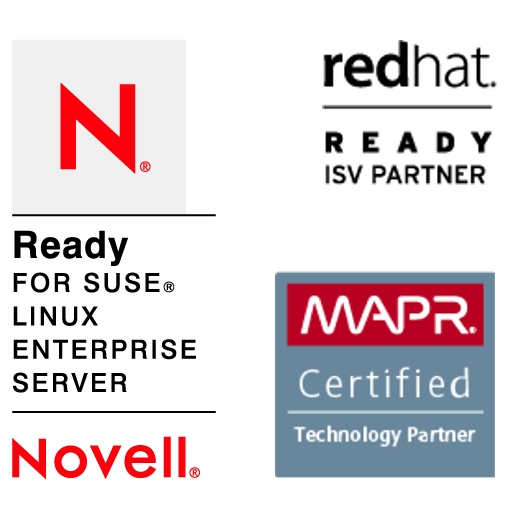Who uses syslog-ng?
The syslog-ng application is used worldwide by companies and institutions who collect and manage the logs of several hosts, and want to store them in a centralized, organized way. Using syslog-ng is particularly advantageous for:
-
Internet Service Providers
-
Financial institutions and companies requiring policy compliance
-
Server, web, and application hosting companies
-
Datacenters
-
Wide area network (WAN) operators
-
Server farm administrators.
Public references of syslog-ng Premium Edition
Among others, the following companies decided to use syslog-ng PE in their production environment:
Supported platforms
The syslog-ng Premium Edition application is officially supported on the following platforms. Note that the following table is for general reference only, and is not always accurate about the supported platforms and options available for specific platforms. Unless explicitly noted otherwise, the subsequent releases of the platform (for example, Red Hat Enterprise Linux 7 and its update releases like 7.2) are also supported.
For the x86_64 architecture, the following platforms are supported in version 7.0.32 of syslog-ng PE:
-
CentOS 7
-
Debian 10 (Buster)
-
Oracle Linux 7
-
Red Hat EL 7
-
Red Hat EL 8
-
SLES 12
-
SLES 15
-
Ubuntu 16.04 LTS (Xenial Xerus)
-
Ubuntu 18.04 LTS (Bionic Beaver)
-
Ubuntu 20.04 LTS (Focal Fossa)
For details about the syslog-ng Agent for Windows application, see the syslog-ng Agent for Windows documentation.
For using syslog-ng PE on other platforms (for example, AIX), see the list of supported platforms in the syslog-ng PE version 6 Administration Guide.
Certified packages

Starting from version 4.0, syslog-ng Premium Edition is Novell Ready certified for the following platforms:
Starting from version 4.0, syslog-ng Premium Edition is RedHat Ready certified for the following platforms:
-
Red Hat Enterprise Linux 2.1 on the x86 architecture
-
Red Hat Enterprise Linux 3 on the x86_64 AMD64 & Intel EM64T architecture
-
Red Hat Enterprise Linux 4 on the x86 and x86_64 AMD64 & Intel EM64T architectures
-
Red Hat Enterprise Linux 5 on the x86 and x86_64 AMD64 & Intel EM64T architectures
-
Red Hat Enterprise Linux 6 on the x86 and x86_64 AMD64 & Intel EM64T architectures
Starting from version 5.4, syslog-ng Premium Edition is MapR certified.

